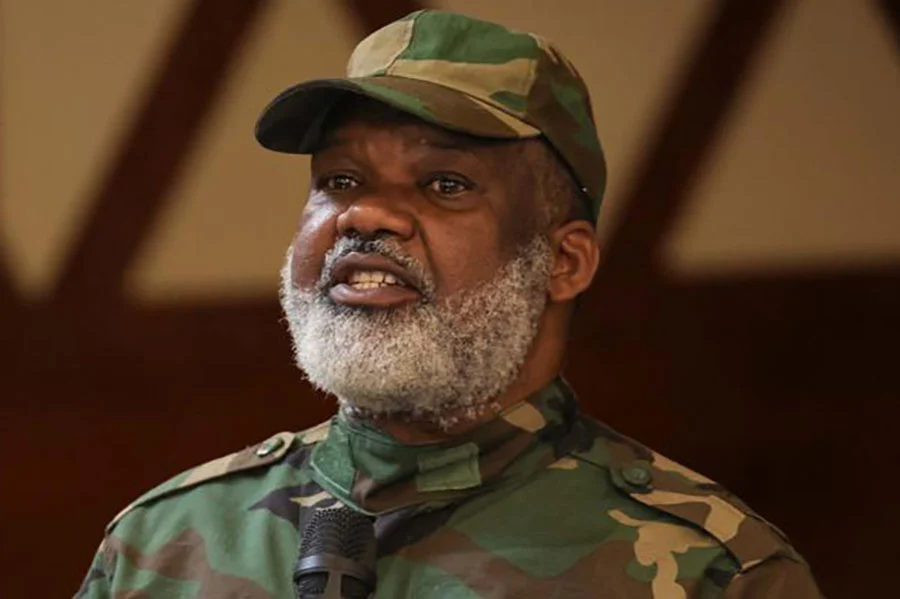Ceasefire Frays as M23 Rebels Recall Doha Delegates

The M23/AFC rebel coalition has recalled its delegation from peace talks in Doha, Qatar, after more than a month of closed-door negotiations with the Congolese government—signalling the apparent collapse of a ceasefire deal brokered with international support.
The rebel withdrawal, led by Benjamin Mbonimpa, comes amid a wave of defections by prominent political and military figures to the insurgency and mounting preparations for a new assault on the town of Pinga in Walikale territory.
The details of the Doha negotiations have not been made public, and the movement has not issued an official communiqué about its decision.
But insiders point to two triggers behind the recall: Kinshasa’s resumption of military operations in the eastern territories, and what rebels describe as renewed backroom coordination between the government and its European allies.
“Kinshasa immediately ran back to its European handlers and relaunched military operations,” said a source close to the rebel movement.
“So far, there is little common ground, and only time will tell.” The source rejected the word “impasse,” but the withdrawal underlines the growing distrust between the warring sides.
While talks in Doha appeared to offer a rare diplomatic channel, the Congolese government’s renewed offensives in Masisi and Walikale territories may have scuttled any remaining goodwill.
According to sources on the ground, vehicle convoys loaded with troops and heavy equipment have been moving since May 30 along strategic routes such as Masisi–Nyabiondo–Kasopo and Nyabiondo–Kinyumba.
Heavy military assets were also deployed under cover of darkness to Mpety, a key staging point for an expected assault on Pinga.
On Monday, June 2, an M23 commander publicly declared in Kalembe that the movement intended to seize Pinga, citing President Félix Tshisekedi’s alleged refusal to uphold the ceasefire.
“We will soon take Pinga; we have realised that Félix Tshisekedi has no intention of respecting the ceasefire,” he said to a civilian audience.
This declaration, coupled with visible rebel mobilisation across North Kivu, has triggered alarm among civil society actors and displaced communities still recovering from past clashes.
Pinga is a critical node along the RP529 road, connecting Masisi, Rutshuru, and Maniema—regions rich in minerals and long-contested by armed groups seeking to control smuggling routes and trade flows.
The renewed belligerence also coincides with a dramatic political shift: former Congolese president Joseph Kabila is widely believed to have aligned with the M23/AFC.
His loyalist fighters are said to be reinforcing rebel columns near Nyabiondo and Mutongo.
Though Kabila has not issued a public statement, security officials and former army officers now in rebel ranks say his return has strengthened the rebellion’s military and political posture.
Other prominent figures, including former presidential candidate Rex Kazadi and ex–South Kivu governor Marcellin Cishambo, have also defected to the rebel cause in recent weeks—each bringing their own base of supporters and amplifying the scale of the rebellion.
Kazadi’s motives remain unclear, though his departure from the national opposition has been interpreted as a repudiation of Tshisekedi’s legitimacy, especially after contested elections and accusations of constitutional overreach.
His defection, like Kabila’s, adds a layer of political grievance to what has increasingly become a coalition movement against Kinshasa.
The AFC/M23 has also continued to build a quasi-governmental structure in areas under its control. In parts of Rutshuru and Masisi, the group is reportedly collecting taxes, running local courts, and policing roads—effectively replacing state institutions.
Analysts believe this signals the movement’s broader aim to establish a semi-autonomous region built on past grievances of marginalisation and failed peace deals.
The rebel recall from Doha has dashed hopes that the Qatari-brokered ceasefire could hold.
The previous tactical withdrawal of M23 fighters from Walikale town, once seen as a goodwill gesture, now appears to have been either a strategic retreat or the result of military pressure from government troops and allied militias.
As the rebels threaten to storm Pinga, residents across the Kalembe–Kalonge–Pinga corridor are appealing to MONUSCO peacekeepers and the Congolese army for protection. But in Goma, civil society voices warn that the world is watching idly.
“The ceasefire is being abused as a smokescreen for expansion,” said one activist. “If the international community waits until Pinga falls, the cost will be unbearable—for civilians and for the future of this country.”
Kinshasa has not yet commented on the rebel withdrawal or the accusations of ceasefire violations. But with tensions escalating and political alliances shifting rapidly, eastern DR Congo appears poised for a new chapter of conflict—one marked by fractured diplomacy, internal rebellion, and growing regional uncertainty.



0 Comments